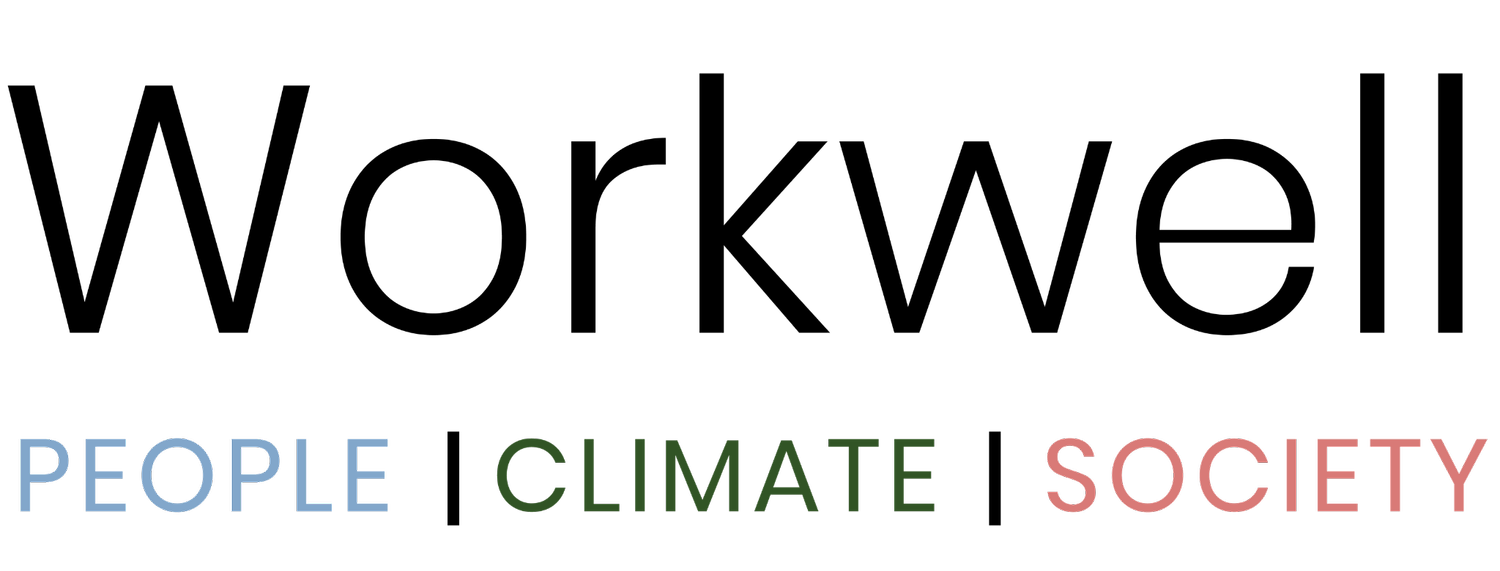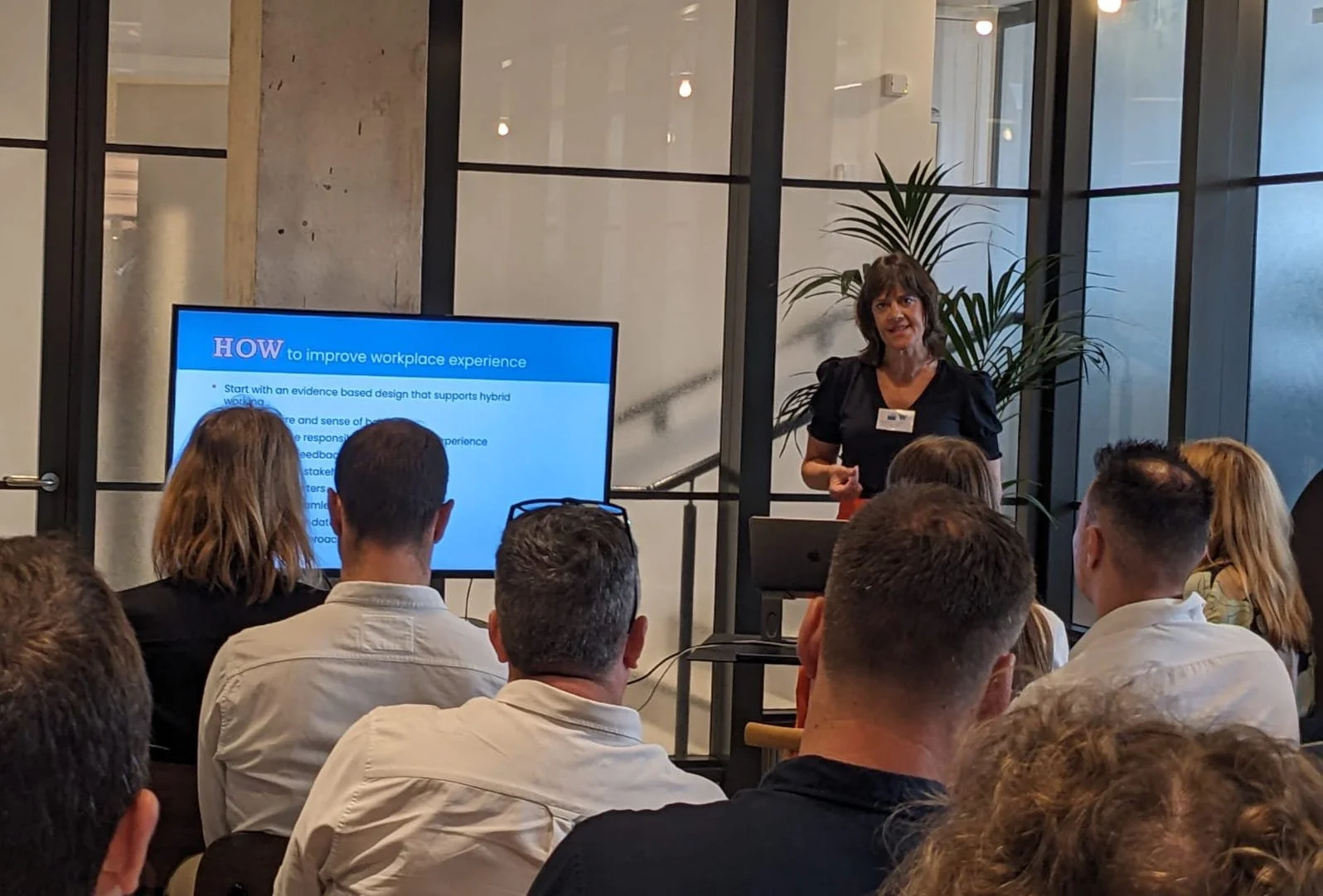Top 5 priorities for creating an exemplary workplace experience
In September 2023 we ran a seminar on workplace experience in conjunction with the British Council for Offices (BCO) and Women in Property South West. This in person event attracted a wide audience from Bristol businesses and beyond. They all had one thing in common – they were motivated to find out how to improve their or others’ workplace experience. Deborah Wilder, our Workplace Psychologist, together with Christopher Allen, Workplace Strategist at Montroc Consulting, shared their vast experience, research, ideas and tips about how to create an exemplary workplace experience. We cover the basics in this blog. And if you’re interested in learning more, look out for our upcoming White Paper on Workplace Experience.
What is workplace experience?
How do you feel about hot desking? Do you think the commute to the office is usually worth it? Do you work from home when you’ve got a deadline? These things have nothing to do with our actual jobs. They are all about our experience of work. Yet they are so often overlooked or taken for granted.
This is workplace experience. And it’s more important than ever because there have been massive changes in how we work. People are now used to having their own tailored working environment at home, with control over it. Many are finding it uncomfortable working in shared spaces. So don’t frustrate them by getting them into an office and then making them work in an unsupportive environment.
What are the top 5 aspects of workplace experience?
What it really boils down to, for most people, is needing to achieve the following five basic things, in no particular order.
1. Sense of belonging. How do you feel when you walk into the office - do you feel welcome? Human beings are social animals. We generally thrive on feeling like we belong, are part of a group. It motivates us. And if we don’t have good social networks then our mental health can suffer. Our shared workplaces remind us what we are part of and give us shared purpose and values.
2. Comfort and choice. Comfort always comes up as the top thing when we ask people what they want out of a workplace. Everyone wants to be comfortable but people vary widely in their preferences, so we need to offer choice. The range of required solutions is extensive: Height adjustable desks, fully adjustable chairs, simple desk and meeting room booking systems, seamless hybrid technology, easy link up to monitors, plentiful daylight, good air quality and consistent temperature, and an easy commute for where they live. If you are responsible for a workplace, treat this list as fundamental, not as luxuries.
3. Colleagues. When we ask people what they like most about their workplace, the most popular answer is always ‘the people’. Now that we can choose home or office, we don’t want to spend the time or money making that journey if we don’t see the people we want to, or need to. We need to have those conversations, strategy sessions, creative collaboration - the stuff that motivates us, but often doesn’t work so well virtually. We need critical mass, a minimum number of people, otherwise it doesn’t work. Workplaces need to facilitate this, and it requires a complex and ongoing approach, including introducing team charters and easy to use technology.
4. Productivity. Since the huge shift to working from home we’ve seen a renewed focus on productivity. It wasn’t an issue when we could look over and see if others were busy. No matter how much businesses say they are ‘output not input’, they still want to know whether their employees are being productive. But productivity measures are pretty much pointless in creative work and knowledge work. No, Power BI can’t tell you how productive your people are, just how long they’ve been on their computers. And nor will asking them whether they are productive or not. Who is going to admit to their employer that they are not getting much done? Despite this, we still need to think about productivity because people need to feel productive, otherwise they get frustrated. And we need to be productive otherwise businesses or organisations will fail.
5. Concentration. Being distracted is part of human nature. In 1665 Samuel Pepys complained that he couldn’t stop looking at his watch every second when he was trying to write. There’s always going to be some kind of distraction. It’s not just the office. When we’re working at home we still get distracted by Teams messages, Whatsapps, emails, deliveries, the washing machine finishing, or by the dreaded snack attacks. Interruptions are literally stressful – they cause us to release the stress hormones cortisol and adrenaline. We can never remove distractions. But make sure your offices have plenty of places for quiet work, video meetings or private phone calls rather than making the mistake of designing workplaces just for collaboration.
How do I learn more?
Sign up here for our upcoming White Paper where you will get lots more useful information and tips about how to create an exemplary workplace experience.



